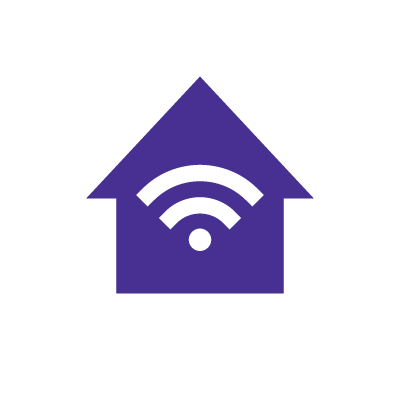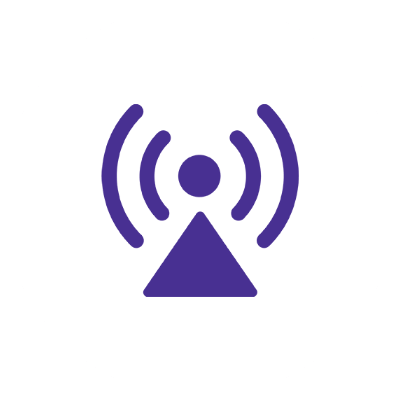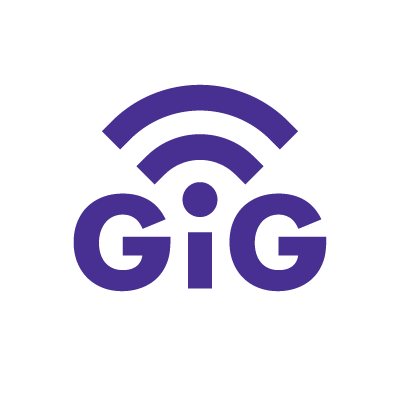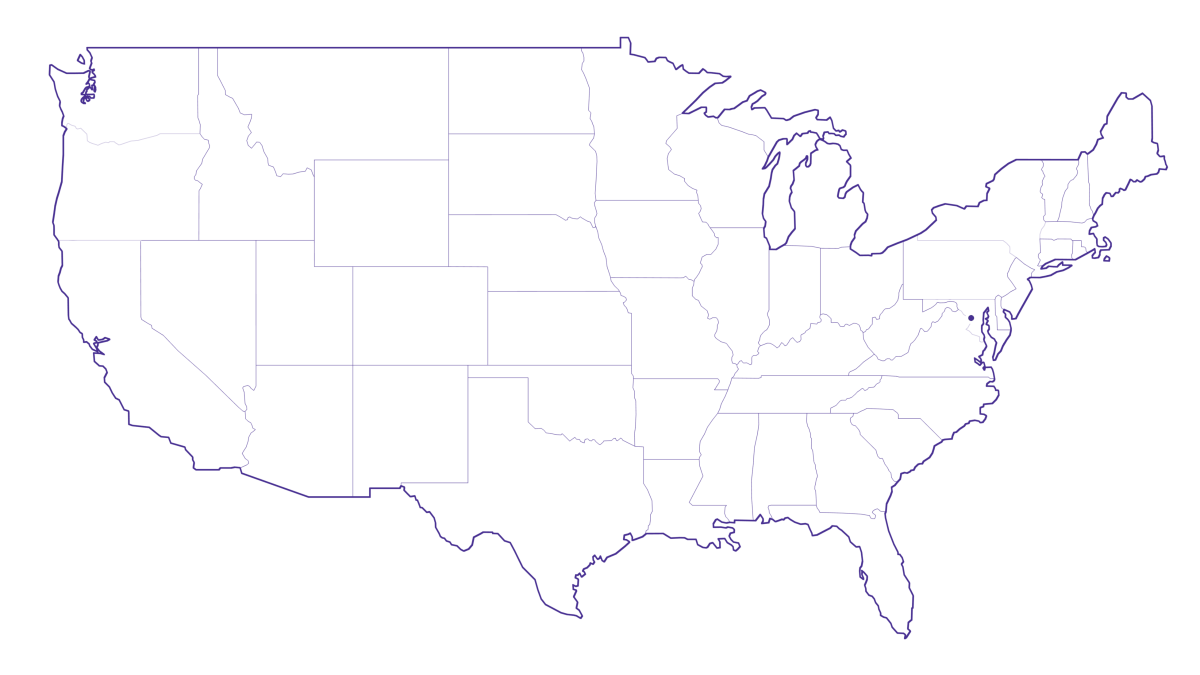Do I need 2 Gig internet? (and what is it good for?)

How much internet speed do I need? With so many different speeds and plans available, it can be hard to find which is best for you.
To help you find the right internet speed, we’ll explain what 2 Gig internet is and what it’s best for.
Switch & save
Astound is the #1 cable ISP
Stream live content, work, surf, game and connect to multiple devices with speeds up to 1500* Mbps through our ultra‑reliable fiber‑powered network.*

What is 2 Gig internet?
2 Gig internet is a fast internet connection and is capable of transferring 2000 megabits per second. A single Gigabit contains 1 million bits, meaning 2 Gig internet transfers data at 2000 million bits per second. 2 Gig internet is also called “2000 Mbps internet”, “2G internet” or “2 Gbps internet”.
A 2 Gig internet connection will allow you to:
- Connect twelve to twenty users and their devices performing high-bandwidth activities simultaneously.
- Access cloud services and learning platforms across multiple devices and users.
- Create a home network of smart devices or home automations.
- Stream HD, 4K or 8K content across multiple devices or users.
- Play MMORPG games, or VR and AR games on console, mobile and PC.
- Download large files much faster compared to 600 or 1000 Mbps speeds.
Most people consider download speeds when choosing internet plans, but upload speeds are also important for tasks like large file uploads, video conferencing and online gaming. Keep in mind that internet speeds also vary based on your network traffic, device performance and WiFi speeds.
2 Gig vs. 1 Gig internet
2 Gig internet is much faster than 1 Gig. If you choose a 2 Gig internet plan, you’ll be doubling your bandwidth so you can connect more devices and engage in more data-intensive activities simultaneously.
If you’re trying to choose between 1 Gig and 2 Gig internet, you should consider your specific internet habits, the number of connected devices and whether or not you’ll engage in high-bandwidth activities. If you are a tech-heavy user with significant internet demands, a 2 Gig connection will help to future proof your household.
While 1 Gig internet is a great internet speed, 2 Gig internet can help resolve any bandwidth limitations when many high-demand applications are running at once.
However, if you’re in a location where 2 Gig internet is still being established but want more bandwidth than 1 Gig offers, look into 1.5 Gig internet as a solution.
Is 2 Gig internet fast enough?
2 Gig internet is fast enough for most households with twelve to twenty simultaneous users and their devices. However, whether or not the speed is fast enough for your home will depend on the bandwidth consumed by each user and their devices.
Here’s a breakdown of what a 2 Gig internet connection can handle:
For gaming
Some online games only require speeds of up to 25 Mbps per person per device. However, competitive players will want to have at least 100 Mbps available at all times.
2 Gig internet provides enough internet speed for gaming in homes with multiple users across different devices.
With a 2 Gig internet connection, you’ll be able to:
-
- Download large games or updates very quickly. For example, with a 2 Gig internet connection, a 10GB file can be downloaded in 40 seconds. With a 100 Mbps internet connection, the same file would take over 13 minutes to download.
- Game online across multiple PCs, consoles or other gaming devices.
- Download small, medium and large games, as well as version updates.
- Stream 4K or 8K video on platforms like YouTube or Twitch. If you’re a serious gamer who plays and streams in 8K, you’ll want 2 Gig internet speeds.
In addition to a great internet plan, consider investing in a dedicated gaming router to optimize your speeds, reduce latency and create high-quality streaming experiences.
Learn more: How to stream full-time as a college student.
For streaming
2 Gig internet is perfect for streaming HD, 4K and 8K content, as well as VR and AR streaming.
Generally, platforms like Netflix require 30 to 50 Mbps to watch shows in 8K quality. 4K VR and AR streaming can demand up to 400 Mbps of bandwidth.
With a 2 Gig internet connection, you will be able to stream:
-
- 4K videos and high-fidelity music across multiple devices and users.
- Virtual Reality (VR) or Augmented Reality (AR) experiences.
- High-quality gameplay videos to an online audience on YouTube or Twitch.
- High-quality video and audio to viewers on social media platforms like TikTok or Instagram.
The number of people and devices in your home determines the quality of your streaming. If you’re still worried about bandwidth, consider speeds higher than 2 Gig.
WiFi that just works!
WiFi plans for any home
Tiny, large or somewhere in between; find WiFi coverage to fit any space. Blanket your entire home with a fast and ultra‑reliable connection.

For working from home
- Host large video conferences with HD quality on platforms like Zoom or Google Meet across multiple devices.
- Enjoy instantaneous uploads and downloads of large files and datasets.
- Have quick access to cloud-based applications and services in real time.
- Experience faster VPN connectivity to the company’s network for secure access.
- Have mutiple users working from home simultaneously use devices.
- Consistently access VR and AR applications for work-at-home tasks.
- Download large datasets.
- Use email and workplace chat solutions like Slack or Teams.
- Use cloud-based development platforms.
- Use online design platforms like Adobe Creative Cloud or Figma.
If you think your working from home tasks might require more bandwidth, talk with your ISP to find the right plan for your needs.

For your apartment
If you’re deciding whether or not a 2 Gig connection is enough for your apartment, consider the number of people, devices, and internet habits.
Generally, 2 Gig internet in a large apartment should provide enough speed for a family to game, stream, work from home and access online learning simultaneously.
If you’ve just moved, find out how to set up internet and WiFi in a new apartment.
For a large home
In most cases, large homes hold more people, personal devices and smart devices.
A 2 Gig connection can host multiple users and devices, including cameras, HVAC systems, smart lights and other WiFi-enabled tech.
However, regardless of your speed tier, a sudden surge in users, devices or integrated tech could slow your internet speed.
In addition, large houses may contain dead zones with poor internet coverage, such as hallways, balconies or stairways. If you’re worried about dead zones, consider using a mesh system to expand coverage.
Astound’s Whole Home WiFi expands WiFi coverage, reduces signal interference and optimizes the performance of your wireless devices. Moreover, mesh WiFi routers are flexible, modular and moveable. Want more coverage throughout your home? Just place an eero where you want a connection.
Learn more: How to set up your internet in a new home
The technology gap
You deserve better internet
5G Home Internet Fixed Wireless Access uses radio waves which are impacted by obstacles like buildings and trees, resulting in reduced reliability.

2 Gig vs. 5G home internet
5G home internet and 2 Gig internet are different technologies that offer distinct characteristics, advantages and limitations.
For example, 2 Gig internet is powered by fiber and cable connections. These connections are wired connections, meaning fewer disruptions. Additionally, most urban and suburban areas already have fiber or cable infrastructure.
2 Gig internet connections offer consistent speeds, reliability and broad coverage. The cost and value of 2 Gig internet can vary depending on your ISP, but providers usually bundle internet, mobile data and TV.
On the other hand, 5G home internet is wireless, unlike fiber or cable. It operates on high-frequency bands transmitted by cell towers. 5G home internet is faster and has lower latency than 3G or 4G LTE networks.
However, distances between cell towers, weather events and network congestion can cause problems for 5G home internet users. Also, 5G internet is a newer technology, meaning coverage is limited to urban areas with existing 5G infrastructure.
If you want the best of both, consider bundling your cable and fiber internet with a 5G mobile wireless plan. You’ll be able to have dedicated, fast, fiber-powered WiFi at home and mobile broadband on-the-go with Astound.

Is 2 Gig worth it?
Determining the worth of 2 Gig internet depends on your personal preferences, the number of users and devices in your home, as well as your online activities.
Why would I need that much speed?
Average households have more than 25 devices tied to one single network in their home. These devices can be smart TVs, laptops, smartphones, tablets, printers, home security systems, appliances or game consoles.
If each of those devices is using at least 50 Mbps, for example, your bandwidth use may be as high as 1250 Mbps (1.25 Gbps). Faster internet speeds will give a better, richer online experience that fits your lifestyle and needs.
When is it time to upgrade to a faster internet speed?
You might want to upgrade to a faster internet speed, like Gigabit internet speeds, if you experience any of these issues:
-
- Network congestion.
- An increase of users in your household.
- An increase of devices in your household.
- Frequent buffering when streaming.
- Long loading times when streaming.
- Latency or lag while gaming online.
- Slow uploads or downloads.
- Internet connectivity issues.
- Poor video or audio call quality.
- Failure of smart or IoT devices.
Make sure to perform regular speed tests to understand the speed your ISP is providing, and optimize your WiFi regularly. You’ll improve your network’s performance, minimize channel interference and rebalance your device load.
If you still don’t see improvement, it might be time to consider upgrading to a faster internet speed.
Will my devices be capable of receiving 2 Gig?
If your devices are upgraded to the latest version and are 2 Gig speed enabled, then your devices will be able to receive 2 Gig internet.
Smartphones allow you to check WiFi speed capabilities within their network settings. To check for yourself, visit the manufacturer’s website or read the manual. Search for “WiFi” and “Network Settings”.
You won’t be able to connect to the 2 Gig internet connection if you have older devices with outdated hardware or network interface cards.
Find your speed
What speed do you need?
Maybe you just need the essentials—or maybe you need to unleash the ultimate internet speed. Explore your options to get the best experience for every device in your home.

How much speed do I really need?
Trying to determine your internet speed connection needs? Ask yourself the following questions:
-
- How many people in my household will simultaneously access the internet?
Consider how many people will be using the internet. Each user or device in the home adds to the demand for bandwidth. - What are the internet needs for my household?
Identify the primary online activities people in your home typically perform, such as streaming, gaming, video conferencing or browsing. - Which devices will be connected?
Determine the number and types of devices used, like smartphones, laptops, IoT devices and gaming consoles. If you will be bringing many devices, consider an internet speed higher than 300 Mbps. - Will anyone be working remotely or learning online?
If anyone in your household works from home or takes classes online, consider the bandwidth required for video conferencing file sharing and other work-related tasks. - Will anyone stream HD or 4K videos?
A faster internet connection is essential for bufferless playback if you frequently stream high-quality videos. - Is gaming a priority for anyone?
Gamers may require faster speeds or improved hardware for increased performance. Look into even higher speeds, like 1200 Mbps, for a richer gaming experience. - Does the house have smart home devices?
IoT devices, like smart thermostats or security systems, will impact your accessible bandwidth. - Are large files frequently downloaded or uploaded?
Consider the need for faster download and upload speeds if you work with large files or use cloud services. - Am I satisfied with my current internet speeds?
Identify any pain points or limitations you may have. - What are my future internet needs?
Do you anticipate potential changes in your internet use? Will you be adding more devices or engaging in more data-intensive activities? - What internet plans are available?
Check with local internet service providers to learn more about plans and speeds near you. Ensure you balance performance, cost and your household’s needs to choose the best plan.
- How many people in my household will simultaneously access the internet?

eero Plus
eero Plus protects your family online with a password manager to safely create, store and share passwords, virus and malware protection and a VPN that lets you browse the web safely and securely.
2 Gig internet equipment requirements
So, what equipment do you need to access 2 Gig internet? It’s important to stay connected, but the wrong router or modem will prevent you from making the most out of your 2 Gig internet speed.
Let’s take a look at some of the 2 Gig internet requirements below.
Internet modem
Fiber ONT box or DOCSIS 3.1 compatible modem: A fiber ONT box or DOCSIS 3.1 compatible modem is necessary for high-speed Gigabit internet connections. You’ll need compatible equipment in order to get the Gigabit internet speed you pay for. Make sure that your WiFi modem is fiber or DOCSIS-compatible.
Internet router
A high-quality router supporting high-speed connections is necessary to distribute the internet signal to your wired and wireless devices. Look for a router supporting Ethernet ports and modern WiFi standards like 802.11ac or 802.11ax (WiFi 6).

Bottomline: Is 2 Gig good enough?
A 2 Gig connection is ideal. It’s fast, reliable and cost-effective, providing sufficient speed for multiple users and devices to access high-bandwidth activities simultaneously. With 2 Gig internet, you’ll be able to:
- Browse the internet on multiple devices with concurrent users.
- Stream 4K and 8K videos.
- Broadcast HD and 4K video content or gameplay to online audiences.
- Access VR and AR experiences.
- Play online multiplayer games in your household.
- Attend live classes or access video learning platforms.
- Host in-person and online events with multiple users.
- Work from home and participate in video conference calls.
- Create a network of in-house smart devices and IoT devices.
Surges in users, however, may affect your speeds. For serious online gamers or households with many people and multiple devices, higher speeds or specific hardware may be necessary.
Frequently asked questions
Does Astound offer 2 Gig internet plans?
Yes, Astound offers 2 Gig internet plans. Currently, 2 Gig speeds are offered in select areas. Check availability in your area.
Is 2 Gig internet fiber?
2 Gig internet may be fiber, cable or a combination of both. It depends on your location, as well as your internet service provider’s existing infrastructure.
What is the average upload speed for 2 Gig ?
An average upload speed for 2 Gigabit internet ranges between 40 – 100 Mbps. In select areas, Astound Broadband can deliver symmetrical speeds, meaning the upload and download rates are the same. However, due to limitations of WiFi technology, upload speeds on WiFi can be slower, depending on the device.
How much does 2 Gig cost?
Currently, Astound offers 2 Gig speeds in select areas. Check pricing and availability in your area, sign up, and we’ll even provide rental equipment capable of delivering 2 Gig speeds. Or, you can bring your own modem if it meets our requirements.
Create the perfect bundle
Get the speed, WiFi, mobile and TV that’s just right for you.
*Internet speeds may vary & are not guaranteed. Certain equipment may be required to reach advertised speeds. DOCSIS 3.1 modem with 2.5GE physical LAN port is required for 1 Gigabit speeds and higher. See astound.com/yourspeed for why speeds may vary. To view Astound’s FCC Network Management Disclosure see astound.com/policies-disclaimers. Limited time offer, subject to change without notice. Advertised promotional price valid for duration of the stated promotional period from time of service activation. Regular rates apply after promotional period ends. Equipment not included and is extra. Modem required for Internet service. Enhanced Wi-Fi or Whole Home Wi-Fi (eero) not included and is add’l. Offer includes a monthly discount for enrollment in both automatic payments (autopay) & paperless billing (e-bill). Discount of $10 applies with automated bank account deduction or a discount of $5 applies with automated credit/debit card payment. Valid email address required. Must complete enrollment in autopay and e-bill within 30-days of placing the order. Without enrollment, the discount does not apply. Discount appears on bill within 3 bill cycles after enrolling. If either autopay or e-bill is canceled, services are changed, or the account is not in good standing, then the monthly discount will be discontinued. Offer valid only for new residential Astound customers or previous customers with an account in good standing who have not had Astound service within the last 60 days. Any add’l services, equipment, premium channels & other tiers of service are subject to an add’l charge & regular increases. A one-time activation fee of $14.99 (in addition to any installation fees) will be charged & is subject to change. Add’l fees apply for taxes & surcharges, and are subject to change. WA RESIDENTS: unless otherwise specified, price does not include a 2% Regulatory Administration Fee. For details about taxes, fees & surcharges visit astound.com/fees. No early termination fees apply in the event service is terminated in advance of the promotional end date. Customer is responsible for any accrued service charges in the event service is canceled. Subject to credit check. Not all services & speeds are available in all areas. A multi-product discount may be available to qualifying addresses with a subscription to mobile, TV, and 600 Mbps Internet or higher. Discounts will be reflected in your order cart at time of purchase, if available. Other restrictions may apply. All services are governed by the Astound Customer Terms & Conditions that can be found at astound.com/policies-disclaimers. © 2025 Radiate HoldCo, LLC d/b/a Astound Broadband. All rights reserved.
While we have made every attempt to ensure that the information contained in this site has been obtained from reliable sources, Astound is not responsible for any errors or omissions, or for the results obtained from the use of this information. All information in this site is provided “as is”, with no guarantee of completeness, accuracy, timeliness and without warranty of any kind, express or implied, including, but not limited to warranties of performance, merchantability and fitness for a particular purpose. Certain links in this site connect to other websites maintained by third parties over whom Astound has no control. Astound makes no representations as to the accuracy or any other aspect of information contained in other websites.
eero Plus is available for an additional $9.99/month and requires subscription to whole home WiFi powered by eero.

















